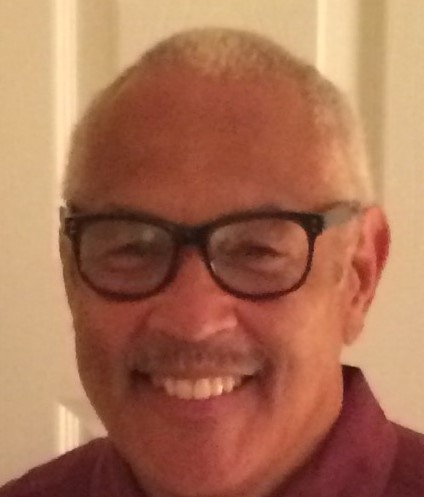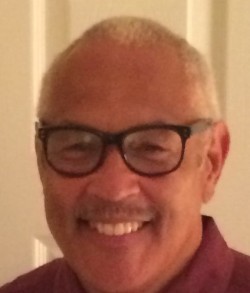
by Calvin Lawrence
The submission and posting of this article is my opinion is based on research, observation, and experience.
I will be using the terms “Racial Tailoring” and “Racial Showcasing”.Definitions:
Racial Showcasing- Some police organizations engage in racial showcasing, that is, they aggressively publicize the first, or the only, or the highest-achieving black police officers.
Racial Tailoring- The restricting of opportunities and the minimizing of accomplishments of black police officers
The hiring, promotion, and in some police organizations postings of black police officer leaves something to be desired. Frequently, but not always the hiring and or postings of black police officers equals the degree of conflict between the black communities and that police organizations. This is especially true regarding the history of policing in Halifax.
In my opinion prior to 1967 there was no great interest in hiring black police officers by Halifax City Police. The United States based Black Panther Party came to Halifax a year or so after that. As a result there was a great deal of conflict, tension, and physical conflicts between the black community and police. The Halifax City Police hired Layton Johnson in 1967. Between 1967 and 1970 approximately five or six more black police officers were hired.
In my opinion once the acute and direct conflicts between the police and the communities subsided the mind set of Halifax City Police was that there was no need to hire black police officers at the same rate.Once hired the next question regarding black police officers is promotional opportunities. The first black police officer was hired in 1967. He was Layton Johnson. The first promotion of a black police officer was Max Hartley in 1995. In a span of twenty-eight years no black police officer was eligible for promotion?
There was also a special class of black police officers hired again after simmering racial conflicts burst into flames.
The RCMP had an employment equity program that black and other non-white RCMP members would be promoted and some posted in their respective black communities. Were these programs a sophisticated way of falsely having the public believe progress was being made (Racial Showcasing)? Could the police agencies be using the programs to practice Racial Tailoring behind the scenes? After all, the public are seeing black people being promoted.Whenever there is conflicts in the black community with police there seems to be a reaction by the police to hire black police officers. This continues to this day. Both the black communities and the police seem to think that this process would help resolve the conflict. This may have been true to some degree in the 1960’s but not now. The focus now should be black police officers in police management positions. I mean upper management! black people are not going to stop committing crimes in their own community because there is a black police officer on patrol. I have seen and worked with white police who cared and policed the black community treating the people, with respect, compassion, and dignity. Some black police officers may be more brutal and harder on people in the black community just to be accepted by white police officers practicing racist behaviour. Other factors aside; it is about the behaviour of the person that wears the uniform. It is not about the police officer’s race.
The black police officer must know the game going in. He must know that he may be used as a black face in the right place. He must know that he may be used for Racial Showcasing. Black police officers that are used in a promotional aspect in racial showcasing are (for the most part) one or more of the following: Light skinned, male, refrain from challenging Police Management regarding racial issues. For every black police officer being racially showcased there are other black police officers being racial tailored.
TO SUM UP:
– The black person being hired may not want to police or be involved in policing his or her black community. They do not want to be tokens hired because there is a conflict in the black community with police. A token by name replaces the real thing. A token only benefits the token and not the masses. This, not to say, don’t police the black community. But even a dog knows the difference between being kicked and being tripped over. In other words are you being used as a black police officer.
– There can be an extreme backlash by other police officers to any perceived lowering of standards in hiring the black person. This phenomenon divides police officers and creates resentments because there are white police officers that can police effectively in the black community – sometimes this results in harassment of black police officers within the force.
– Some police organizations have a target in place for recruitment of black police officers. Does this mean that after the percentage is reached, no more black recruits will be sought or that black applicants will be rejected? Please clarify to the black community (black percentage) police recruiters!
– The hiring of a Black Police Officers, as a standalone advertised process (done by some forces) is a 1960s’ solution to a 2017 problem. The promotion of qualified Black Police Officers should take place in any police organization. If you must do a count then count the number of police officers who are in the higher ranks of the police organization.
– Some forces engage in racial showcasing, that is, they publicize the first, or the only, or the highest-achieving black police officers. Racial showcasing can give a false perception that progress is being made when in fact that may not be the case.
– Others engage in racial tailoring, a process that some police organizations use to discriminate against black police officers by minimizing their accomplishments and restricting their opportunities within the force.
Police organizations should simply ensure that all systemic barriers relating to culture and race are removed. Hold all individual accountable for their behaviour with the information that they have at the time. Overall, hiring and promotional standards should remain the same for everyone.
Often cultures that have been in charge of police organizations and institutions will fight aggressively to keep that culture in charge. In my opinion no culture, especially police culture will ever allow another culture to advance to the point where they will no longer be culturally in charge of that police organization. Therefore I am sad to say that Racial Tailoring and Racial Showcasing are here to stay.
Just because black police officers have a seat at the table does not mean that they are dining. It may just be the illusion of inclusion.
About the writer
Calvin Lawrence retired in 2006 from the Royal Canadian Mounted Police (RCMP) after twenty-eight years, and eight and half years with Halifax City Police. He was recognized as one of Nova Scotia’s outstanding citizens in Steve Kimber’s book: “More Than Just Folks”, 1998. He is currently a consultant on police-related subjects.

